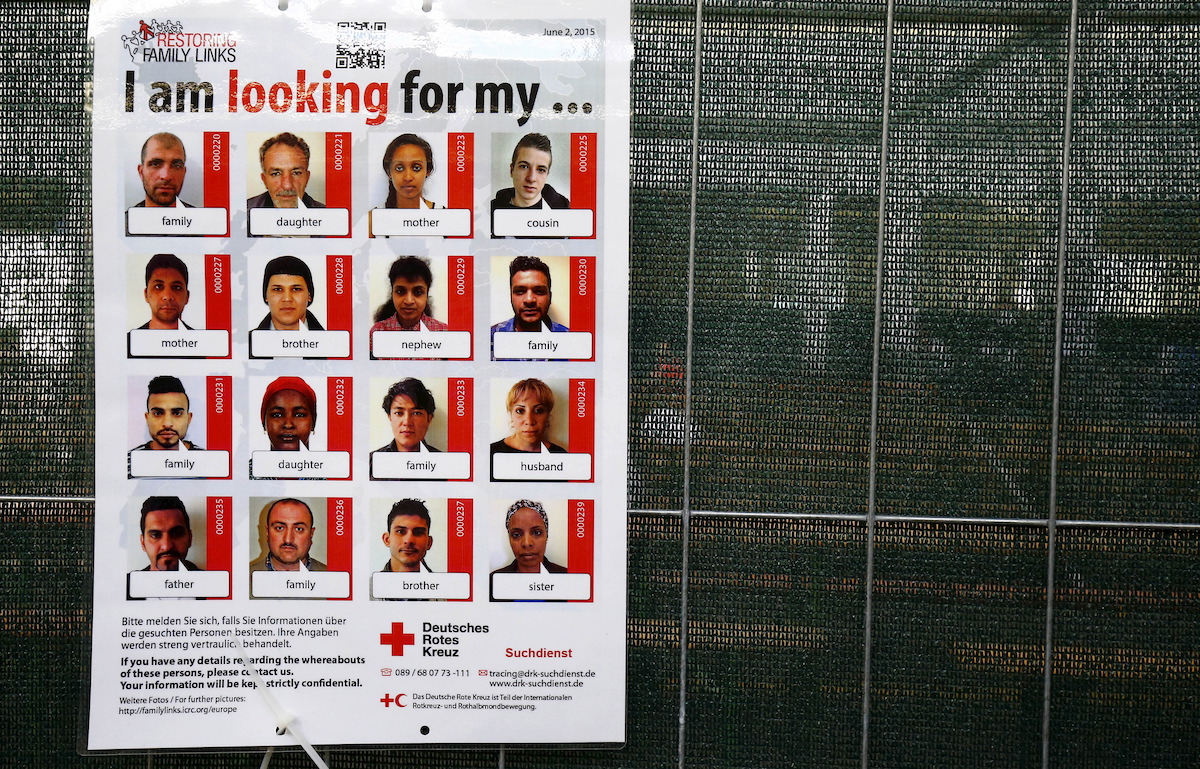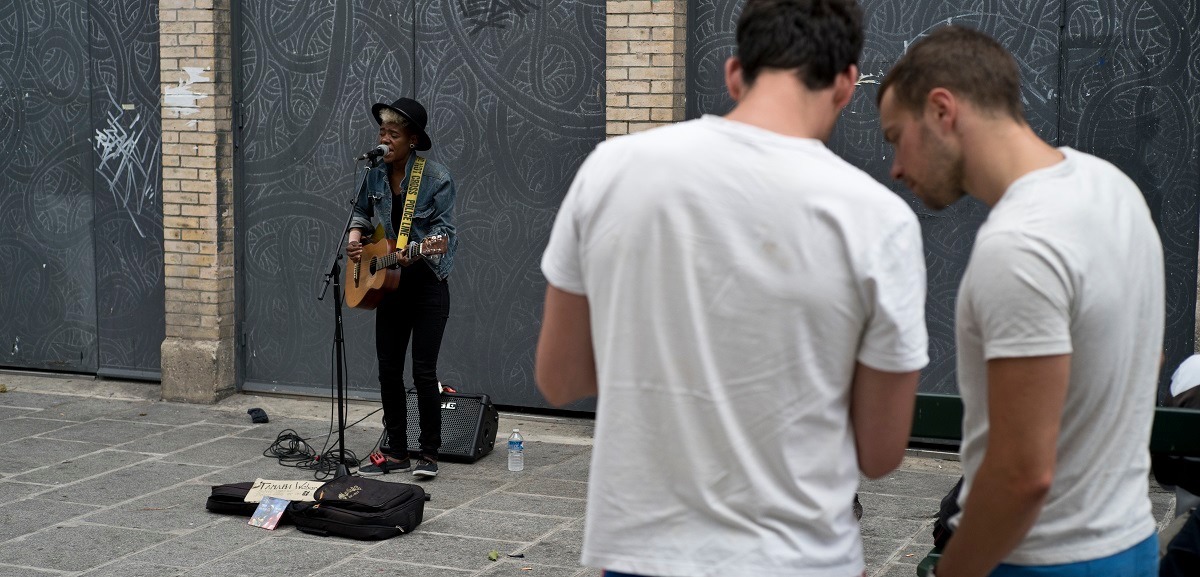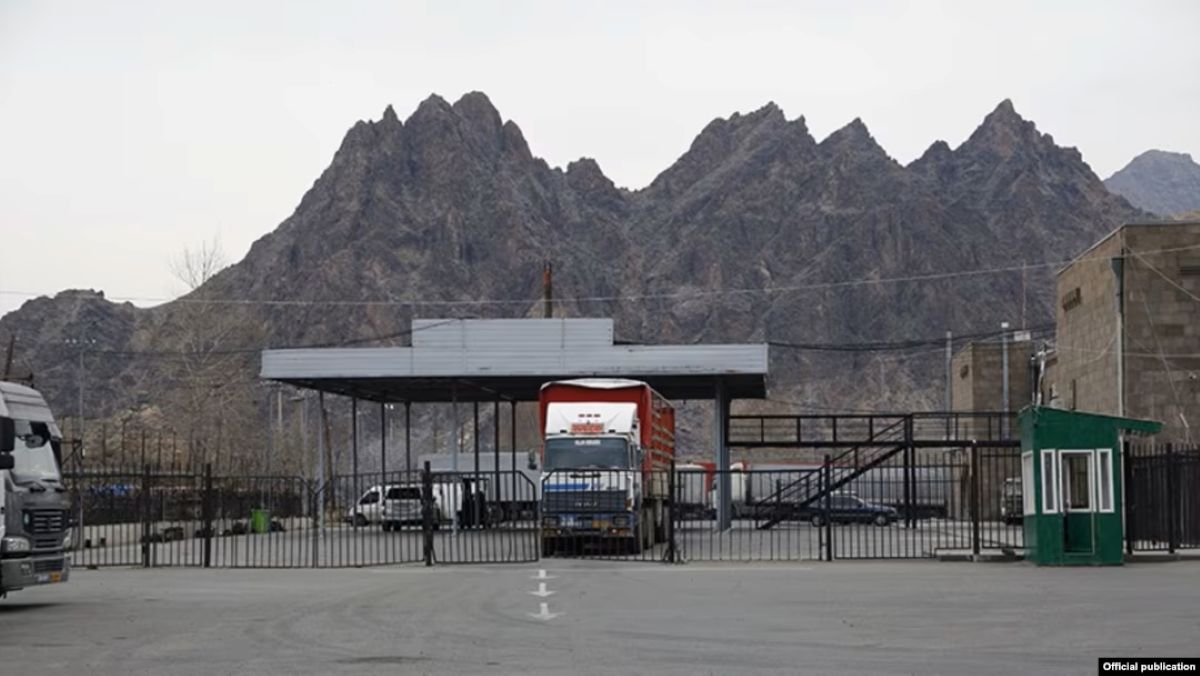Deported from the EU – how Armenians try to stay abroad
38-year-old Karen Sargsyan (name has changed) voluntarily returned to Armenia to avoid deportation after two years in Germany.
Karen hasn’t been able to walk for 12 years and is confined to a wheelchair.
“In 2007, I had an operation in Armenia. The doctors removed a tumor but damaged my spinal cord. I went to Germany for treatment with my brother in August 2017 and returned two years later”, says Karen.
He gave himself in to migration services with all his medical documents, but was refused refugee status. The justification status was that there are suitable rehabilitation centers in Armenia, therefore, he can receive help in his country.
• Why are Armenians teaching English in China?
• How extreme sports stemmed migration from this Armenian village
Many come to Germany with serious illnesses.
But health conditions alone are not grounds for asylum. If the patient needs emergency assistance, then they take people in and even give them temporary shelter. But after treatment they return to their homeland.
They are not deported only if patients need long-term treatment which cannot be received in Armenia.
“When they refused me, I realized that there was the threat of deportation, but I did not want this. I returned voluntarily, because it may be necessary to go again for treatment. And in case of deportation, entry into the country will be forbidden to me for several years”, says Karen.
From Germany, Karen was sent to the Armenian Caritas charity. After his return, the organization estimated the amount of financial help he needed, which was provided.
“They made repairs to the bathroom and toilet, replaced the door, making it suitable for the wheelchair, and also bought a new stroller and bed,” says Karen.
Vergine Gasparyan, a social worker of the Migration and Development program of the Armenian Caritas organization, says that people turned away or refused refugee status abroad are contacted within six months after returning – no later.
This year, 56 families – a total of 157 people – who returned from Germany, Austria, Sweden, Holland and Denmark, appealed to the organization for help.
39 returned to Armenia forcibly, six voluntarily, the rest of their own accord.
“Basically, the reason for their departure abroad in the first place was health, and people returned with the same problem. But there are those who leave with far-fetched or fake diagnoses. We help those who really have health problems,” says Vergine Gasparyan.

Economic migrants
Lusine Stepanyan, head of another Armenian Caritas program, says: Armenian citizens travel to the EU with tourist visas in search of work. And this is considered legal entry – another question is on what grounds they remain there.
“These people ask for asylum, get rejected, go to court, they are refused again – and they become illegal migrants. According to conventions, various international documents, refugee status can be obtained if there is a state of emergency in your country, if a person is subjected to political persecution and other persecution.
Armenians today are economic migrants. As was happening three or five years ago, people travel abroad to improve their social situation. And even if they say that they have been subjected to political persecution in their country, this can be verified,” says the head of the Migration and Integration program.
Lusine Stepanyan also explained why the number of returnees is growing:
“During the Syrian conflict, Europe opened its borders to millions of refugees. The EU countries have begun to study asylum cases more closely, and, of course, the requirements for standards have become stricter. They say: we are sending back economic migrants in order to be able to help those whose lives are in danger.”

Returning home
Readmission is the procedure for the return of their citizens who have violated the migration law of the EU.
The readmission agreement between Armenia and the EU entered into force on January 1, 2014.
In the first quarter of 2019, the Armenian migration service received 1,030 inquiries regarding the status and return of 2,045 citizens – 83% of the requests were approved –
hat is, the service confirmed that these people were citizens of Armenia and could return.
Those who have no problems with their documents are returned to Armenia without notifying the migration service.
Accordingly, there is no exact data about them.
However, in 2018-2019. there was a sharp increase in the number of deportees.
“The reason is the political changes that occurred in Armenia last year, that is, the ‘velvet revolution.’ After that, Armenia began to be considered a safe country. In addition, many Armenian citizens who had refugee status and who seemed to be living in Germany or another EU country calmly did not know that their status was reviewed every three years.
“Often this status is canceled and people are sent back. Because the reasons why the status was granted in the past are already considered neutralized,” said Nelli Davtyan, the spokeswoman of the Armenian migration service.
She explains that in the past, the cases of people who applied for asylum could be considered for 20 years – but today the decision is made within 24 hours.
In Germany, for example, representatives of the migration service study cases right at the airport. And some do not even have time to leave the airport.
“Our citizens should know: in order to get refugee status there, in Armenia their life must be in danger – due to political, religious views or belonging to a particular social group.
“Why does it seem to our citizens that our European colleagues are so divorced from reality? Several times a year we receive delegations that come to collect information about the country of origin. Ultimately, why should Germans pay more taxes so that Armenians dreaming of a better life can live there for free?” Says Nelli Davtyan.
People are often deported in the middle of the night, not even allowed to pack. Many say that they are being taken to the plane in handcuffs.
“I even had wounds from handcuffs. They demanded us from Armenia, they said that they would take care of their citizens. Let’s see what we are offered. We, like many, before leaving, sold our house and everything we had. When we arrived, there was no one to even meet us. Now we don’t know how to live”, says Sargis Karapetyan, who returned with his wife and children.
Nelli Davtyan says that people are only deported after three warnings:
“Our European colleagues say that many Armenians resort to extreme measures, just not to come back. One woman hung a child out of a window, threatening to let him go if they tried to deport them. There are many such cases, so there is a strict order – to deport people in handcuffs, at night, unexpectedly. It sounds funny, but it’s done just for the safety of these people.”
Reintegration
The state does not implement any programs for those who return to Armenia.
An emergency support program is still under development. Now this is done by public organizations that provide people with financial assistance and help to reintegrate into Armenian reality.
One of them is the European Network for Returns and Reintegration. The representative of the organization Anush Hanoyan listed what they are doing as part of their program for people who are returning to their homeland:
• organize a medical examination,
• reimburse rent for housing for six months,
• help those who wish to establish their own business,
• send to vocational retraining and retraining courses.
In parallel with these processes, Armenian citizens continue to travel to European countries and stay there, violating migration laws.
Experts say that this impedes the negotiations of the Armenian government on the abolition of the visa regime with the European Union.



















